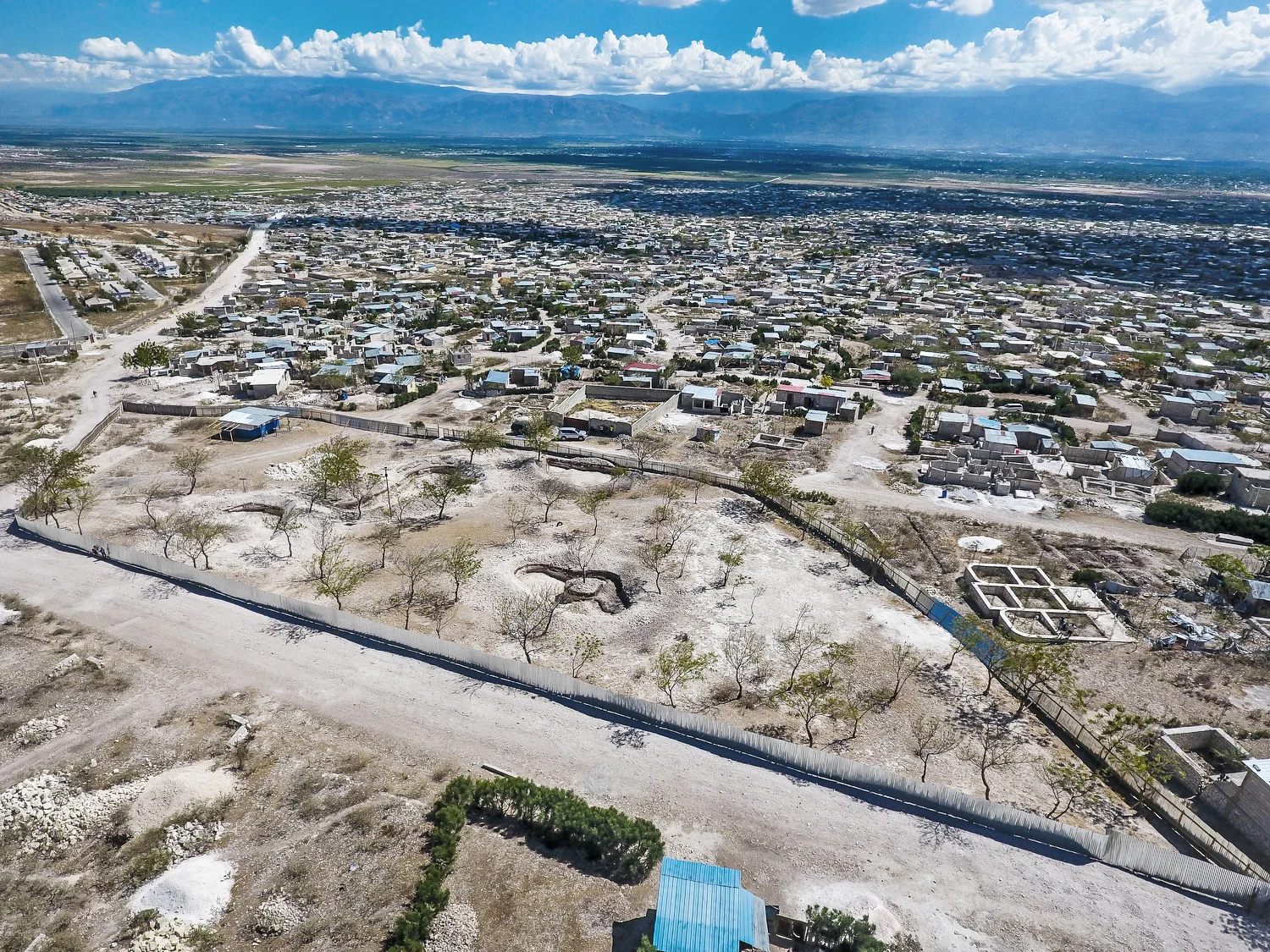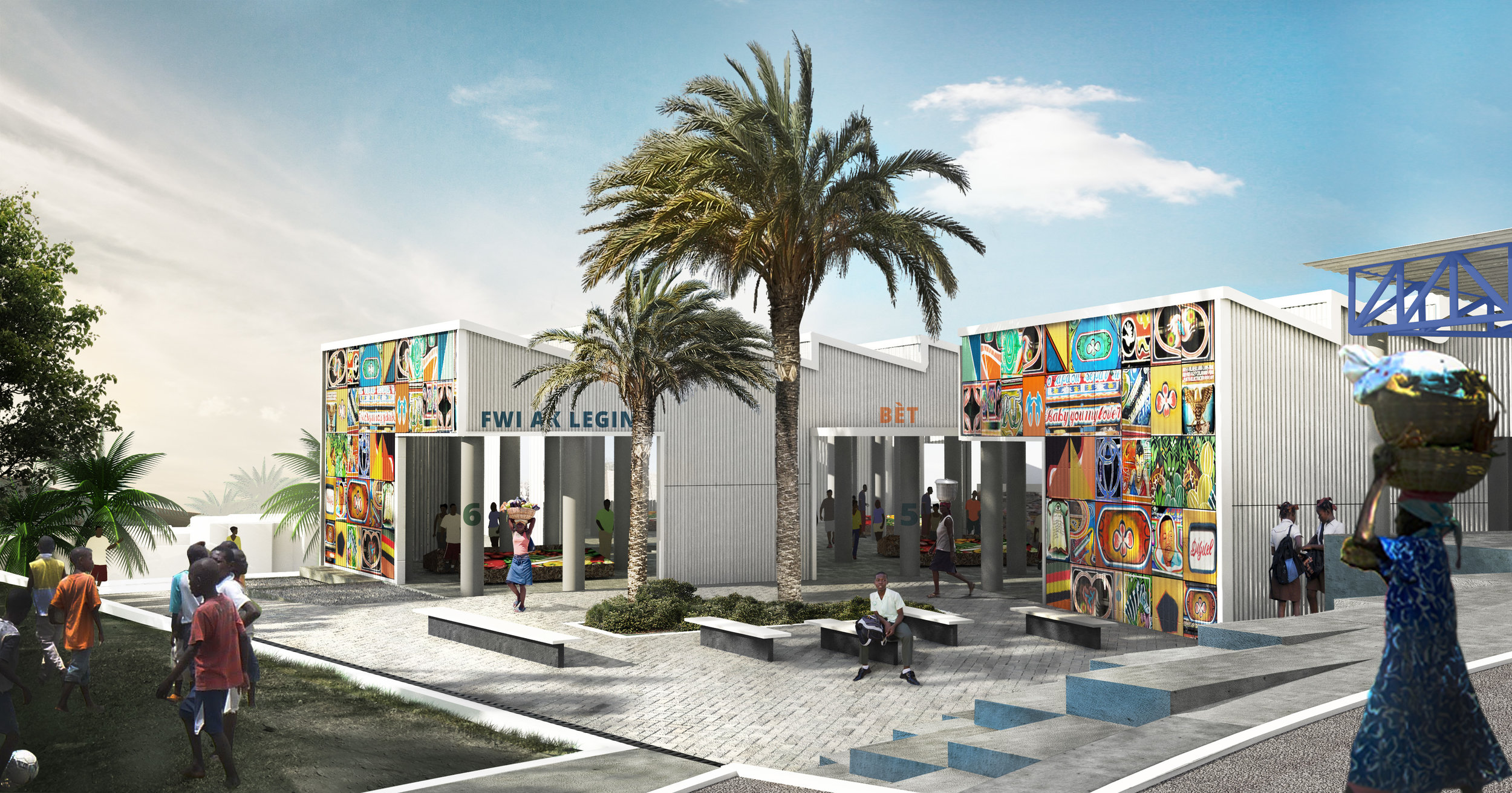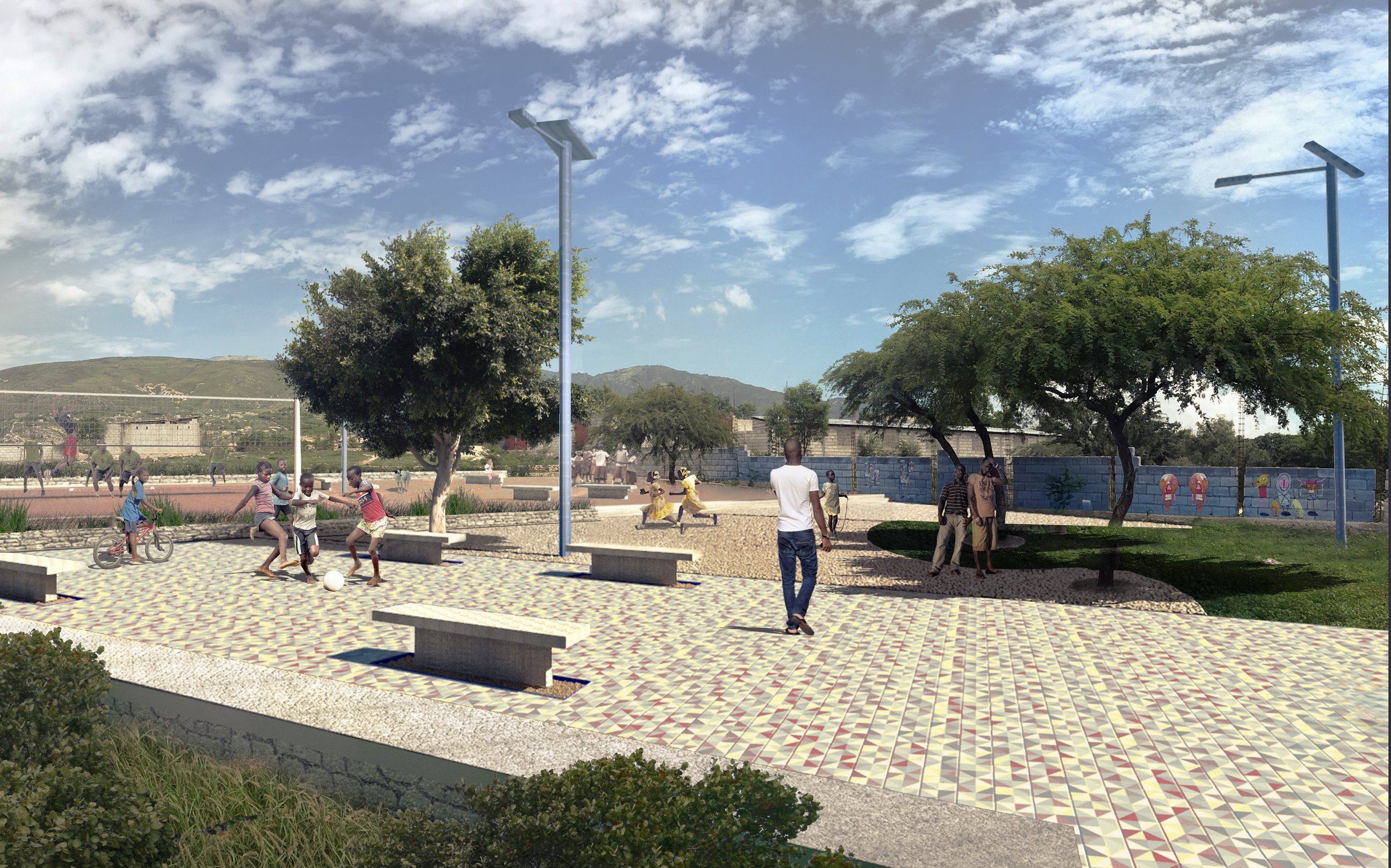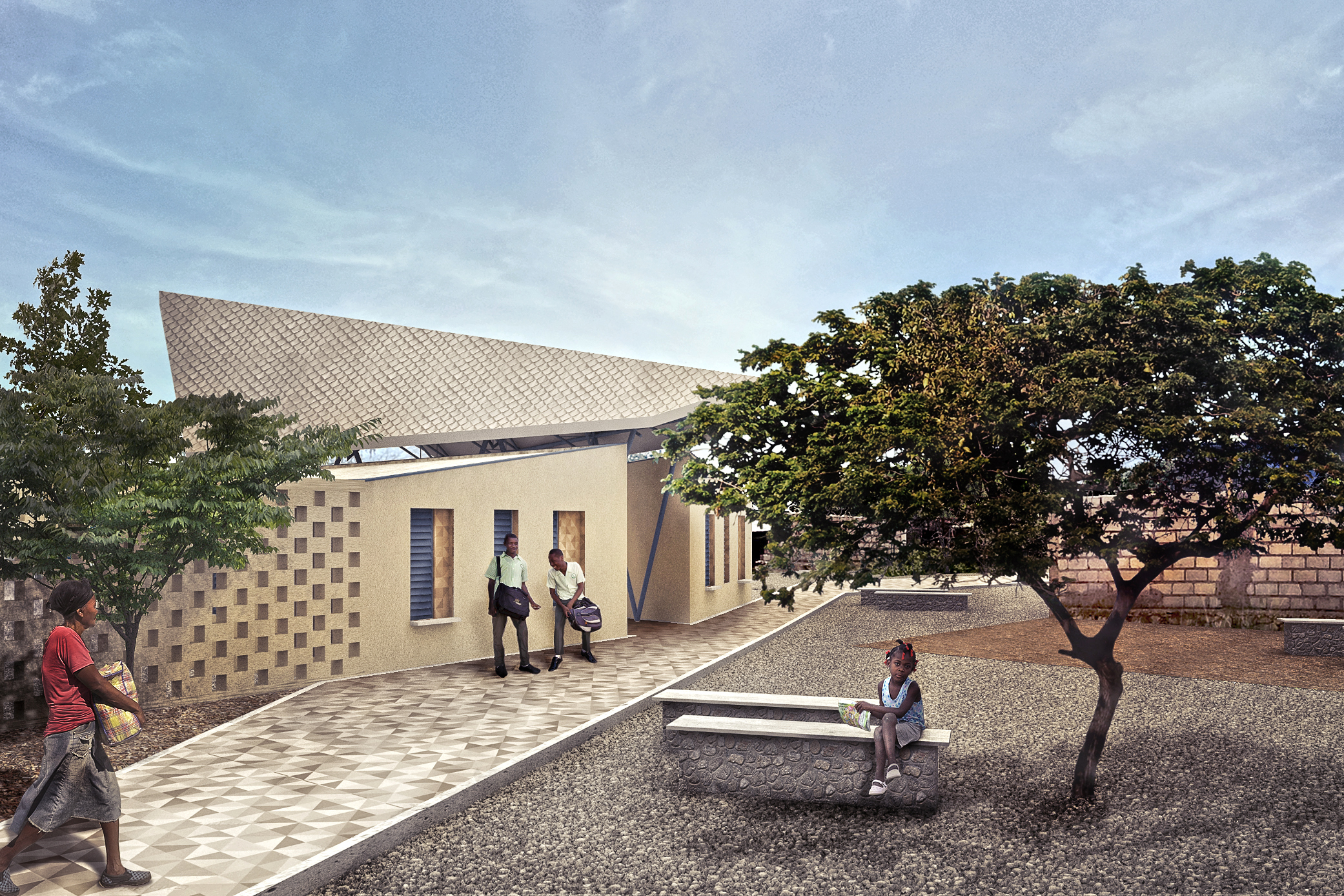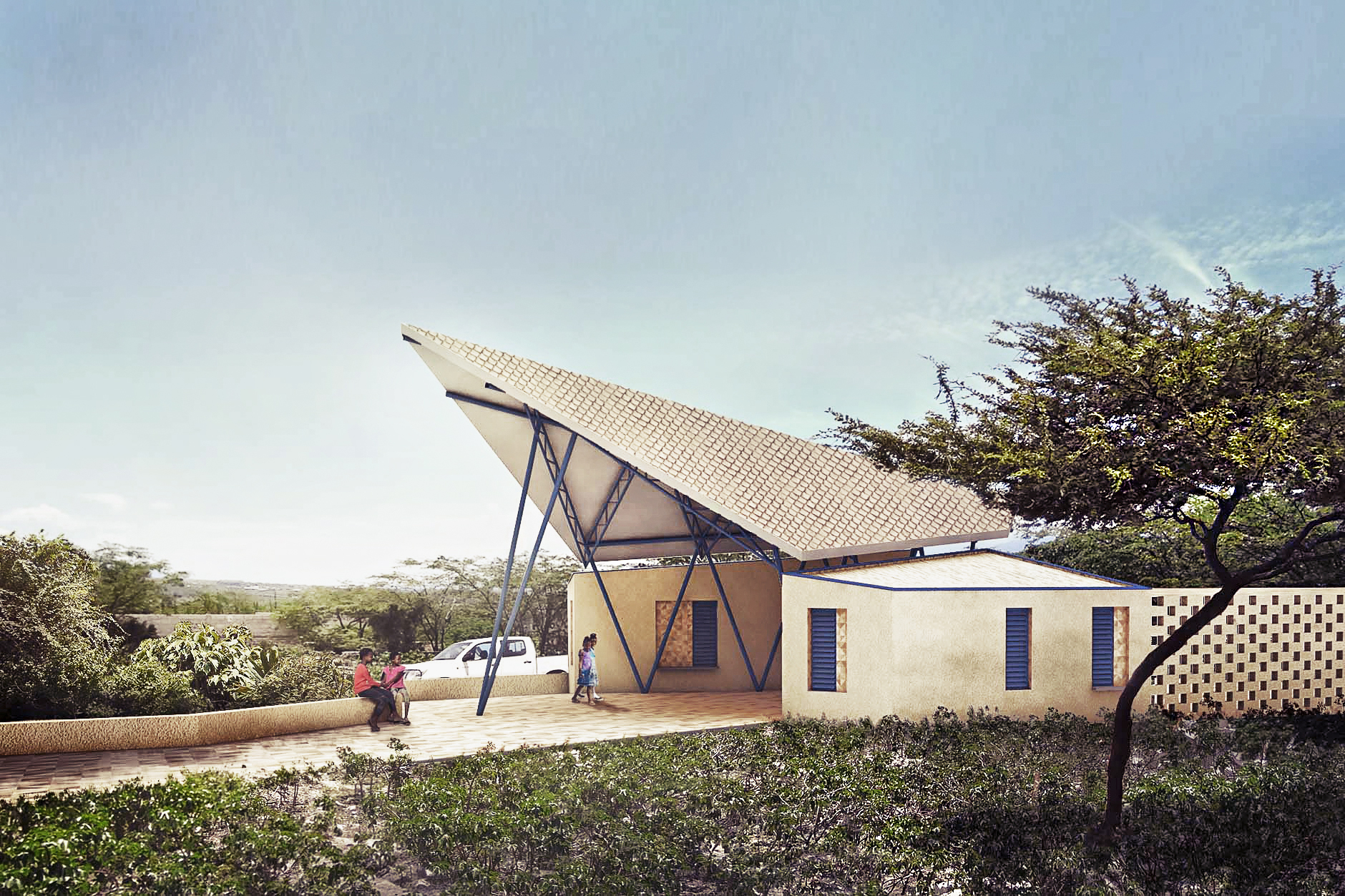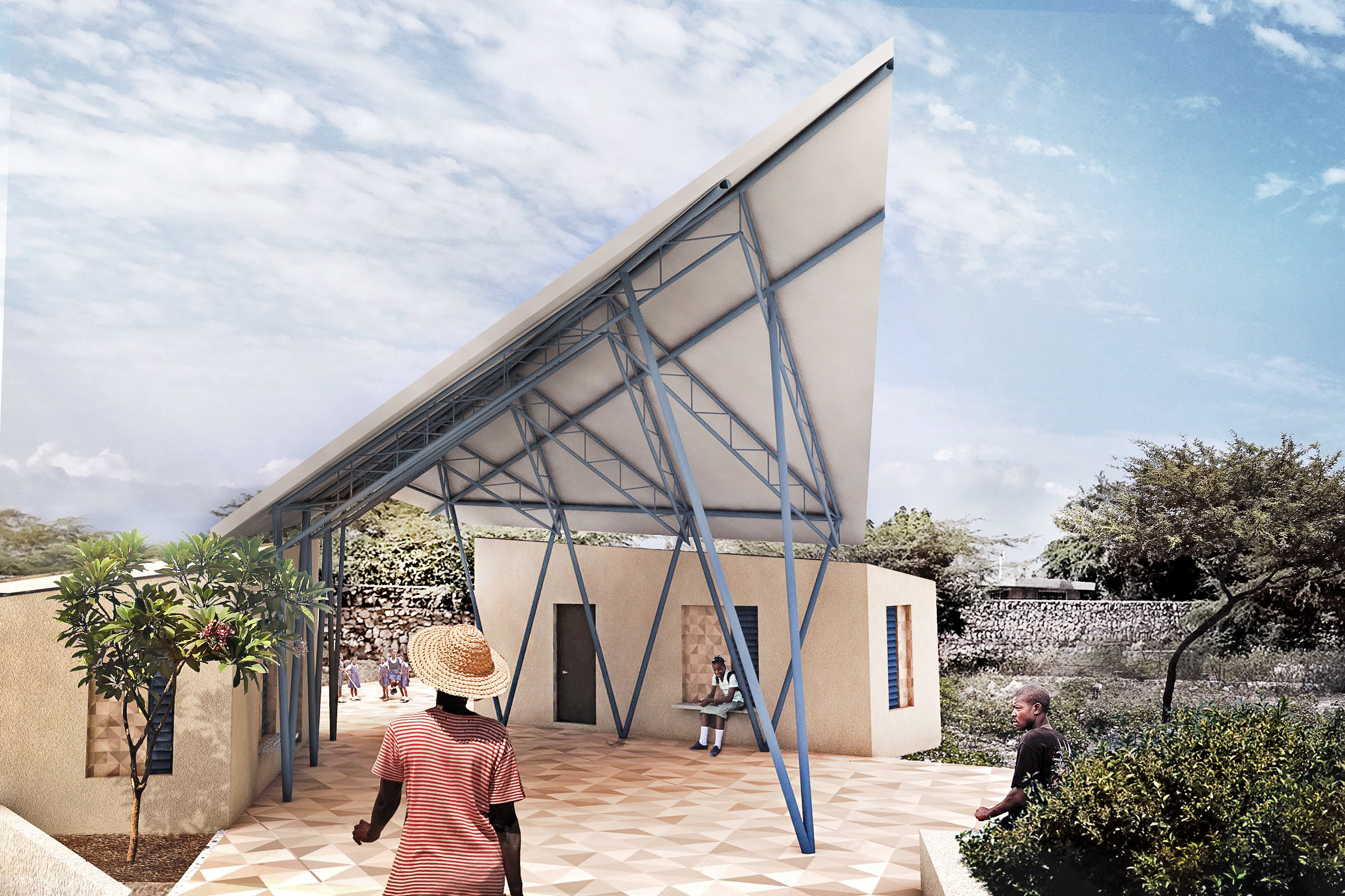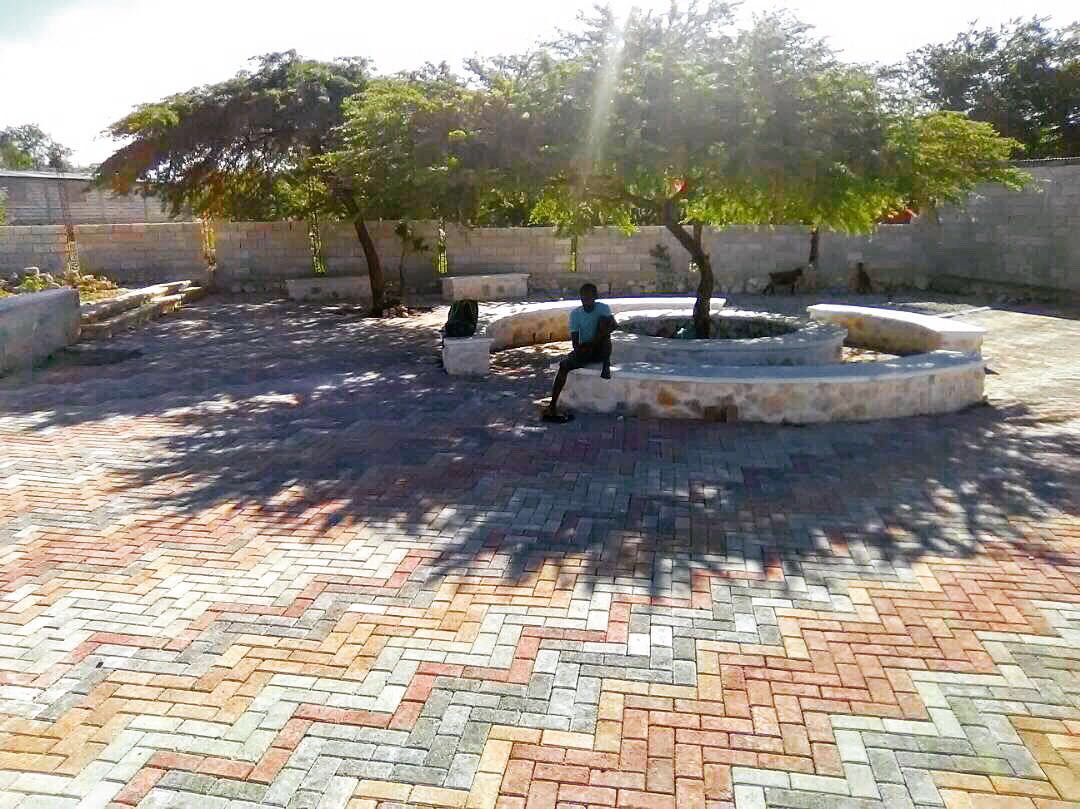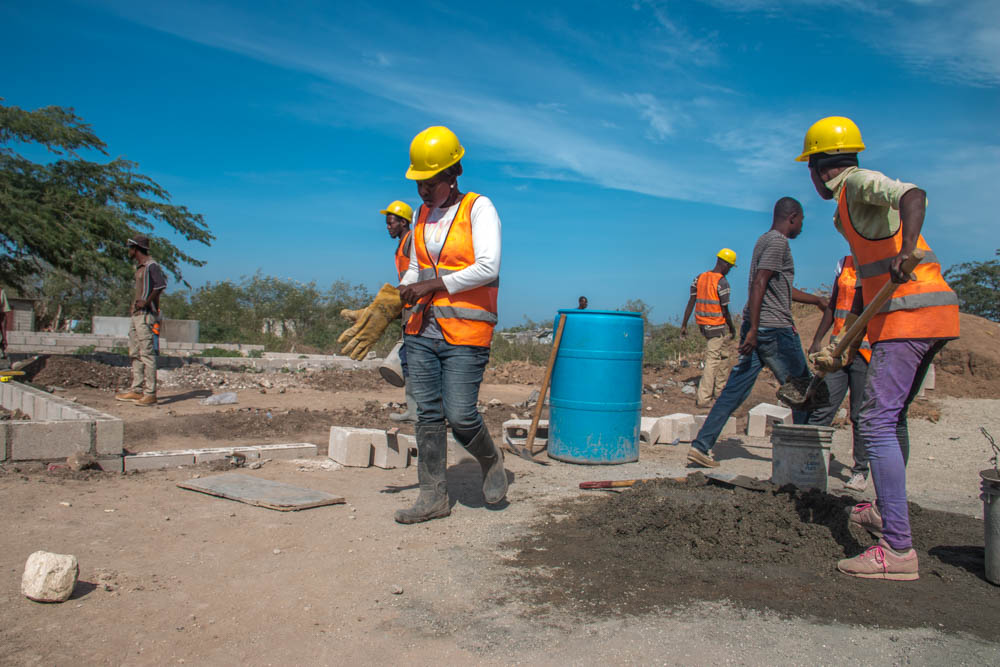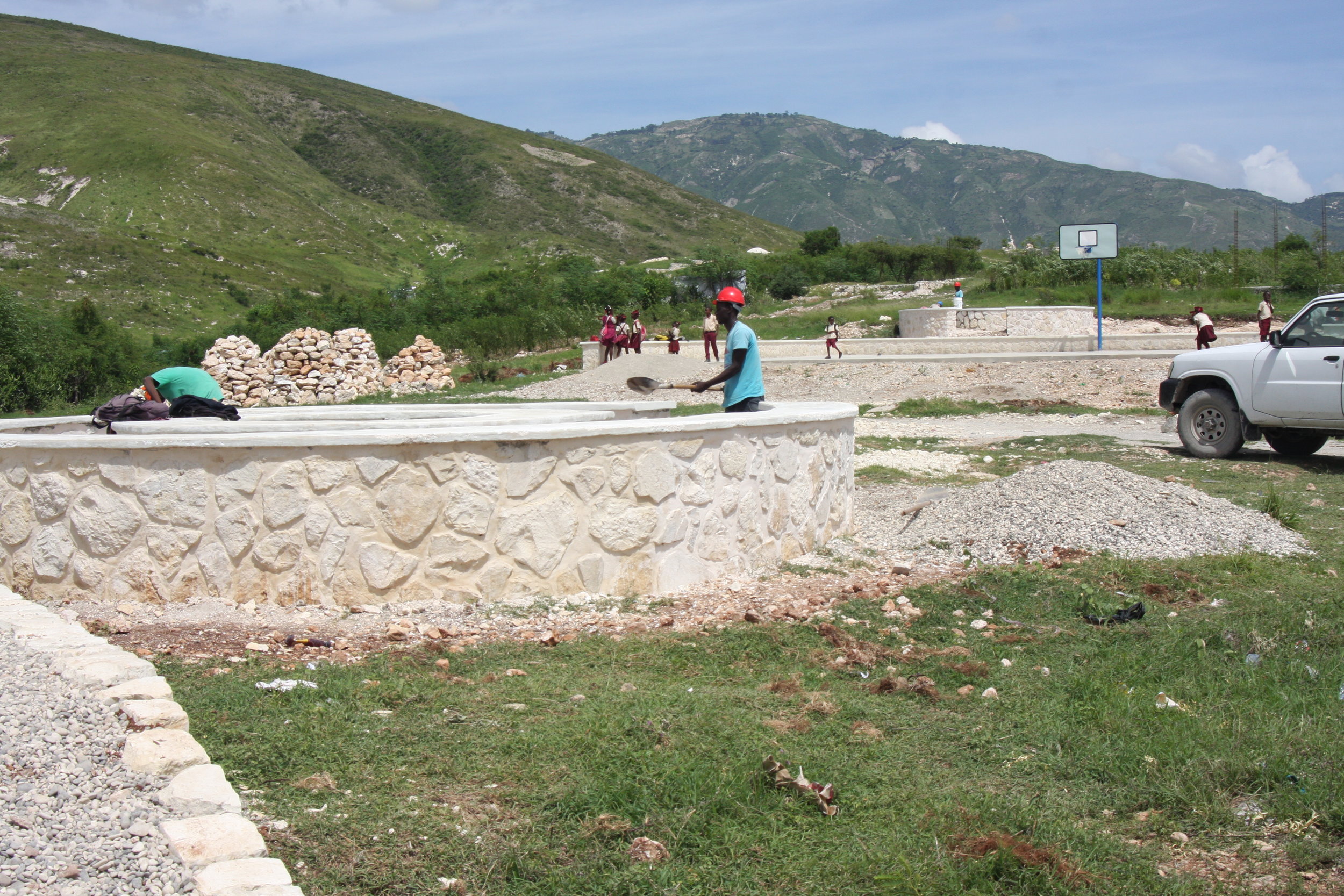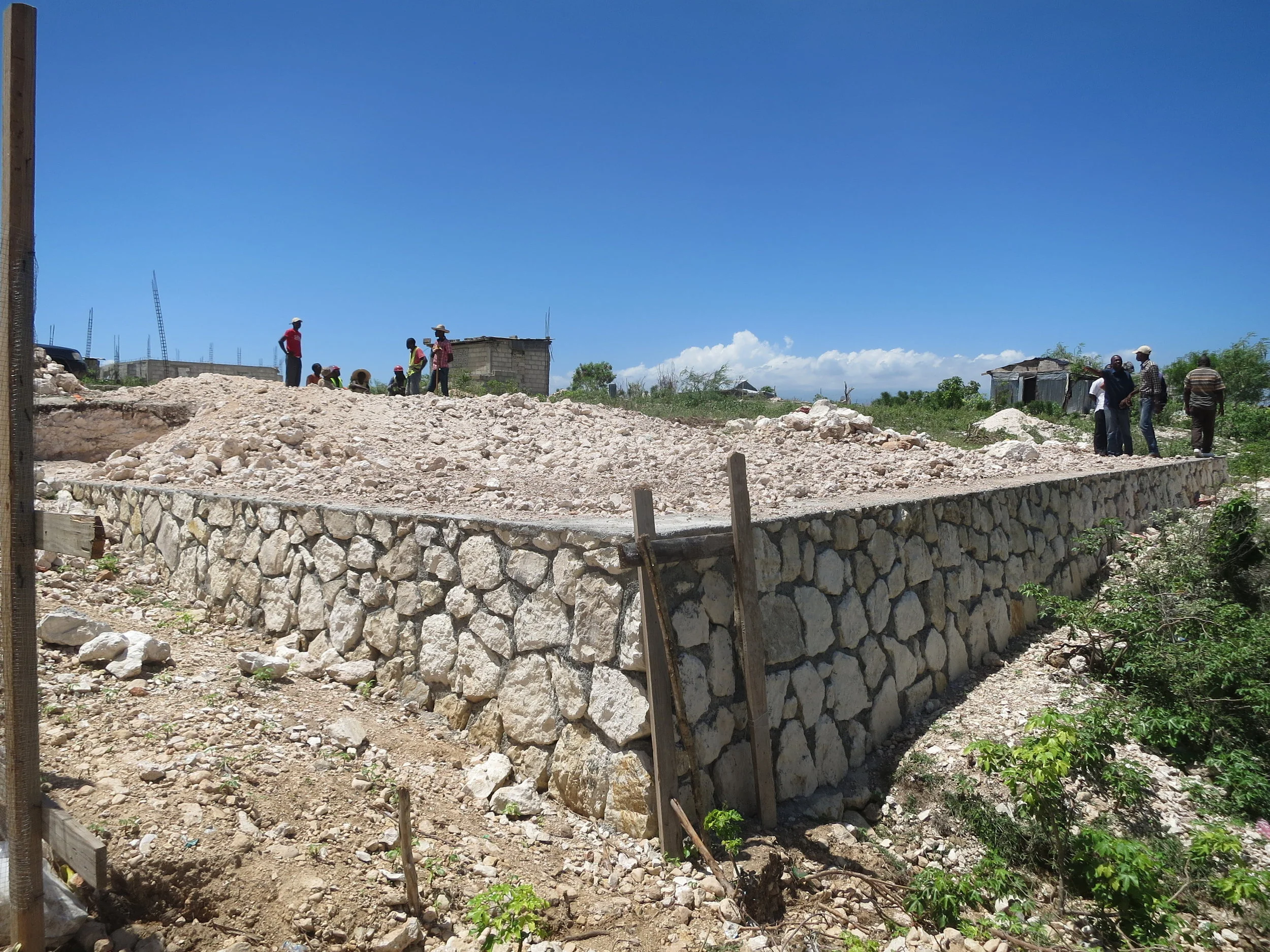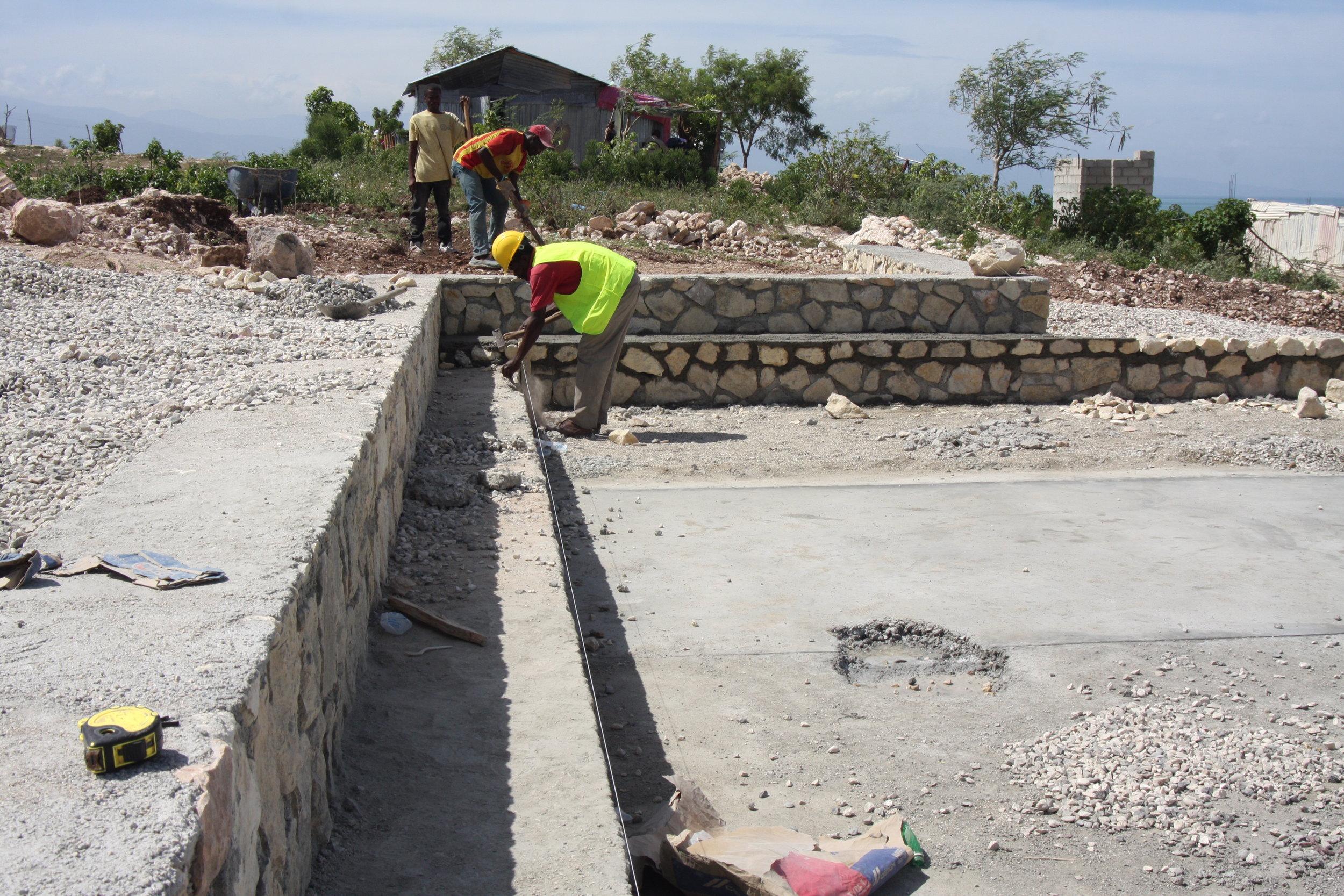The studio is currently working on the delivery of 16 public spaces and community buildings in Canaan, a vast informal settlement on the outskirts of Port-au-Prince, Haiti. The projects aim to provide quality public space, which offer a change from the unplanned nature of the area, by increasing safety, providing shade and creating a friendly environment. They form part of the Canaan Upgrading and Community Development (CUCD) programme by USAID, and will be completed by the end of 2017. Canaan was practically uninhabited before 2010, but has rapidly grown to host a current population of over 200,000.
People began to flock to the area following a presidential decree in May 2010, which declared the 18,000 acres of land public utility –to serve for the redevelopment of the metropolitan area of Port-au-Prince and in part to relocate victims of the 12th of January 2010 earthquake which left 1.5 million people without homes. People continue to arrive daily, and despite uncertain land claims, informal growth far exceeds planned development. Though relatively low in density, homes are constructed on a first come first served basis and empty lots of land are fast to be built on.
The designs of the public spaces anticipate further unplanned growth, and aim to protect the potential for future development of the sites with an outside-in approach. The designs start at the site boundary established at the first community engagement meeting and work their way innwards. Careful attention has been given to the creation of visually permeable borders which help define what is public and private without being obtrusive or hostile. This was primarily done through soft-scaping techniques and combines native – drought tolerant plants with clever drainage solutions. Within the boundary, the programme of each public space was established directly through community engagement meetings, and is reflected in the uniqueness of each project. Though varying in their use of space, each project works by identifying the existing conditions and the needs of the community, and succeeds by overcoming the local challenges of scarcity and budget constraint. Maximising the footprint on site has not lead to compromise, but to a search for more innovative and locally available solutions. Stones and gravel are used throughout, capitalising on the local availability of these materials
By studying the context and the origins of Canaan, as well as understanding and working with the community, the projects respond positively to the local challenges. Understanding the specific requirements of each project and community needs allowed to establish comprehensive briefs achievable with the funds available.
A particular design challenge was the resolution of drainage on all sites and to mitigate the impact of flash floods could have on soil stability. To overcome this, issue a sustainable drainage strategy was devised, which incorporated the use of vetiver grass and other planting to stabilise the soil on sloping sites. The vetiver, planted in rows along the site, slows down the surface water run-off on site and helps direct water to larger areas of planting. The arid climate in Canaan, and the deforestation endemic of Haiti, is countered by creating pocket green spaces and areas of mini-forest. The hope is that by creating greener public spaces, they will provide a more relaxing environment and therefore will be used more. In addition to this, the informal nature of the urban area, means that houses are not connected to electricity, and the lack of jobs have resulted in criminality and violence. To ensure the spaces are safe after dark, solar lighting has been incorporated in all projects, cloaking the public spaces with the safe glow of the LED lights. All projects are also accessible and include appropriate ramps, step grades and handrails.
Location: Canaan, Haiti
Year of construction: 2017/2018
Client: Global Communities
Consultants: Sisul Consulting, Sogetra, E4P
Donor: USAID, American Red Cross
Credits: Andrea Panizzo, Anna Calogero, Etienne Pernot du Breuil, Gianluca Stefani, Radim Tkadlec, Samuel Eliodor, Berrousse Exius, Mardochèe William, Phanor Beausèjour, Faudia Pierre, Alex Borrell, Matthieu Courtade.


